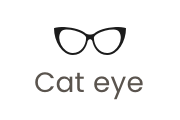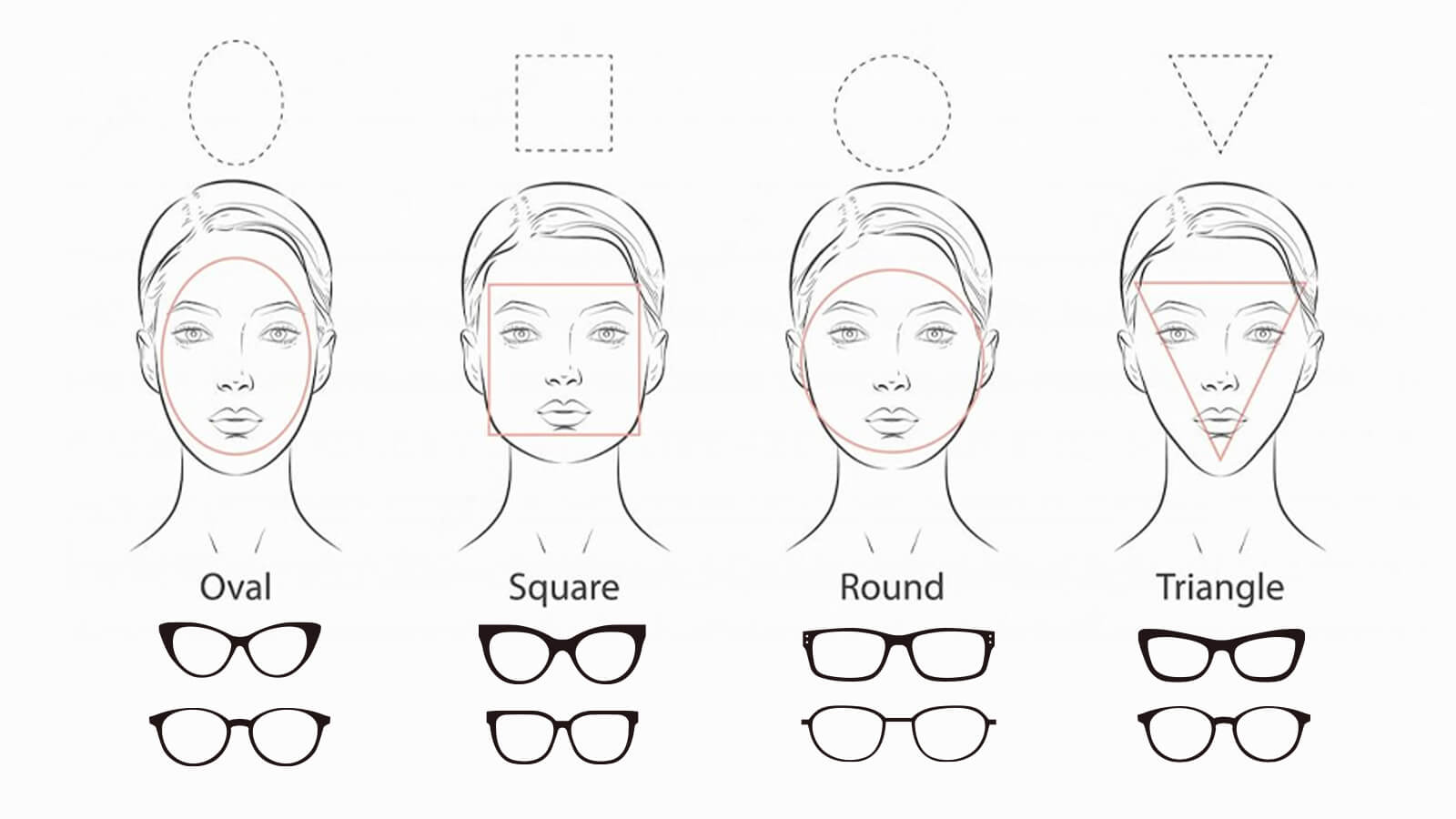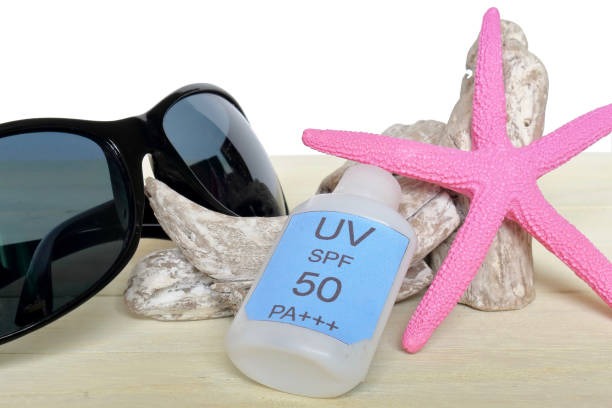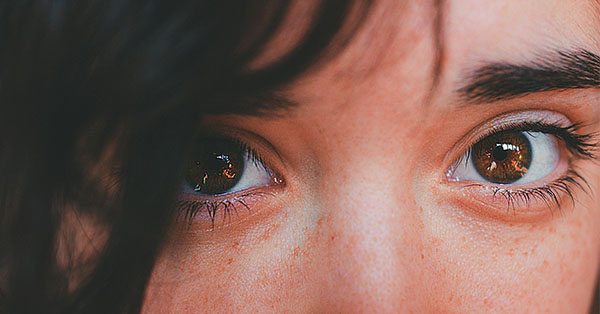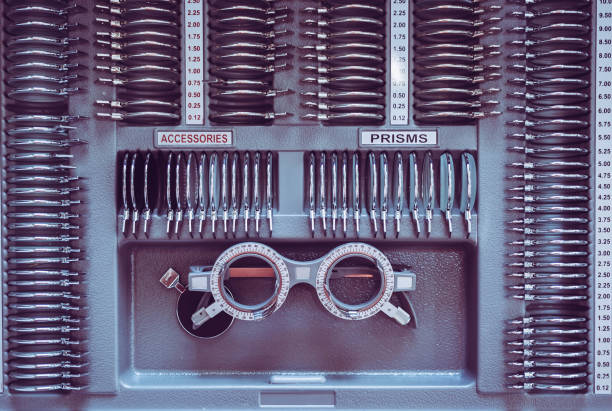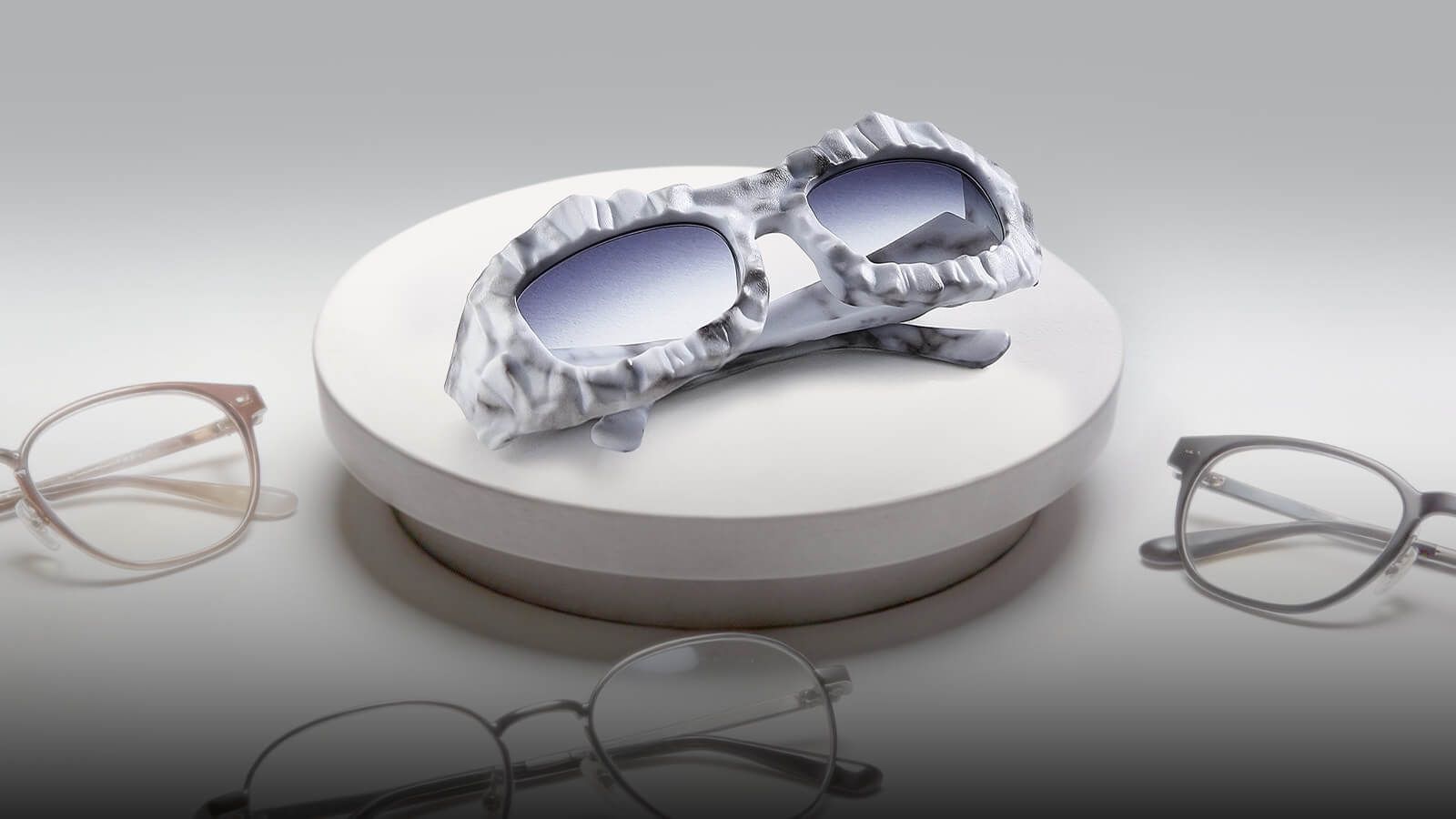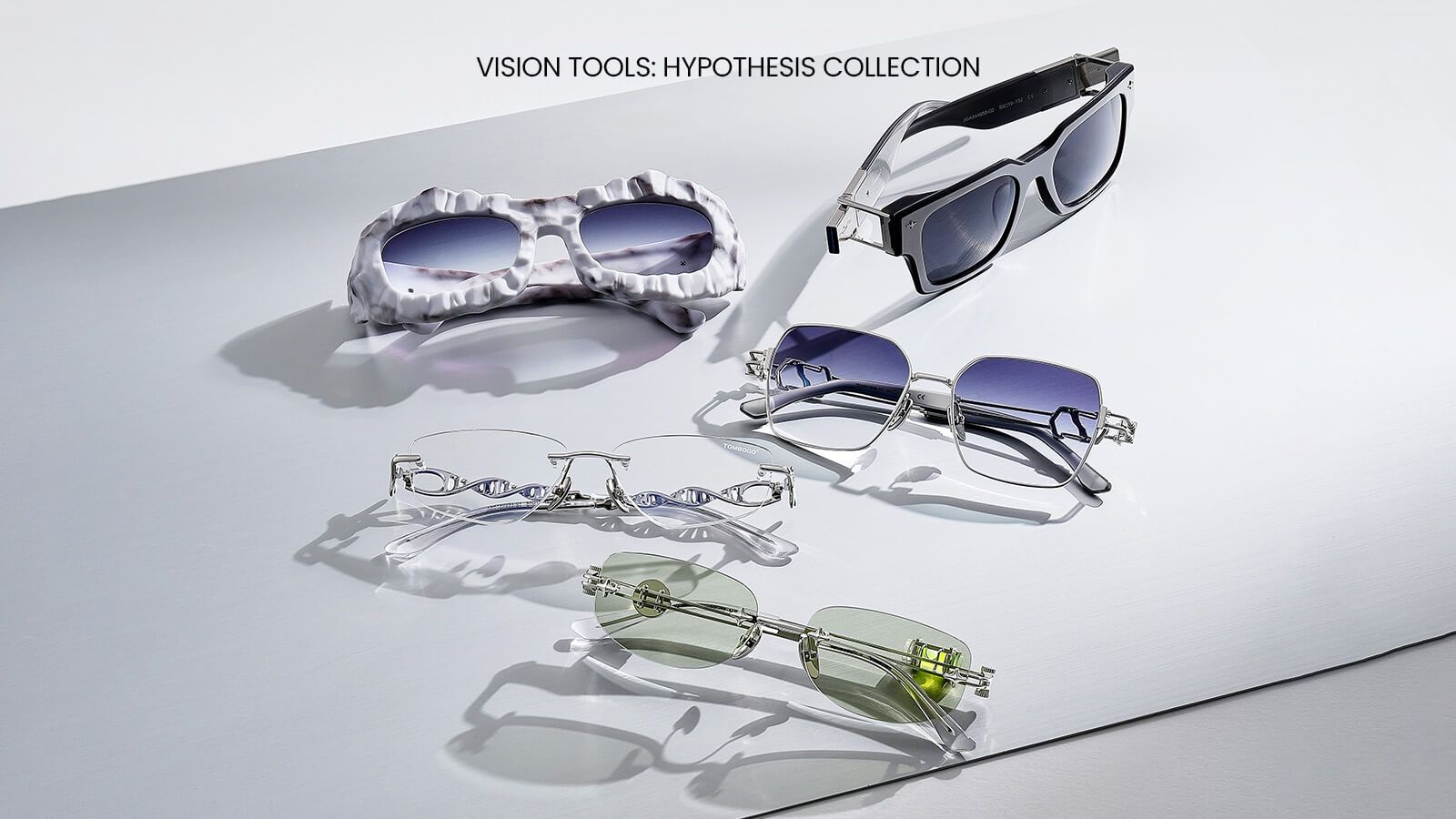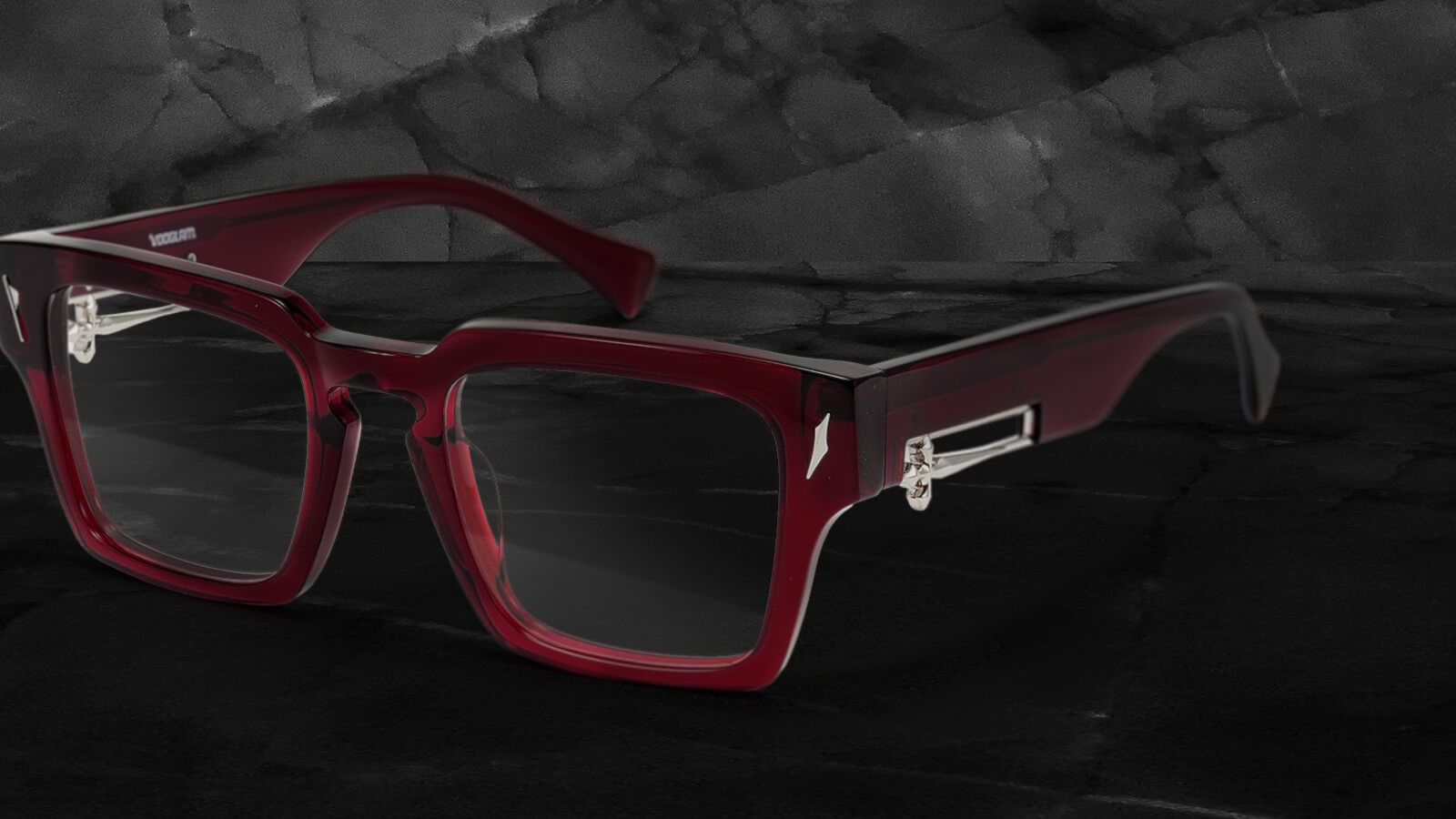
Guide to Picking Glasses That Suit Your Face Shape Perfectly
February 27,2023

What is Boho Style? A Comprehensive Guide to Boho-Chic Fashion
February 13,2025

Virtual Glasses Try On - Find Your Perfect Pair Online
April 02,2024

UV Protection Glasses VS. Blue Light Glasses - Vooglam
July 20,2023

Newest Style Modern Trendy Mens Glasses | Vooglam
March 01,2024

Stylish Reading Glasses: Blending Fashion with Functionality
February 16,2023

Photochromic Lenses 101: How They Work & Why You Need Them
September 22,2023

Brown Eyes: The Beauty of the Most Common Hue
September 01,2024

The chubby face glasses for round face female
August 02,2023

What are prisms in eyeglasses?
March 20,2023

What Are Bifocal Glasses? The Complete Guide (Types, History & Benefits)
April 14,2023

How to Read Your Eyeglass Prescription?
March 11,2023
Why Is My Eyesight Getting Worse? A Clear Guide to Causes and Next Steps
It can feel a bit worrying when you realize your eyesight is not as clear as it once was. You may be holding your phone a little farther away, or squinting to read signboards that used to look fine. At first, you might think you are tired, but when the blur doesn’t disappear, that quiet concern starts building. Many people go through this, wondering if it’s normal or something serious.
Don’t worry, you’re not alone. This article will explain some common reasons why eyesight changes with time. Some are harmless, while others need quick medical attention. You’ll also find out what steps you can take next so you understand what’s happening and how to handle it better.
Note: This article is not a substitute for a professional diagnosis.
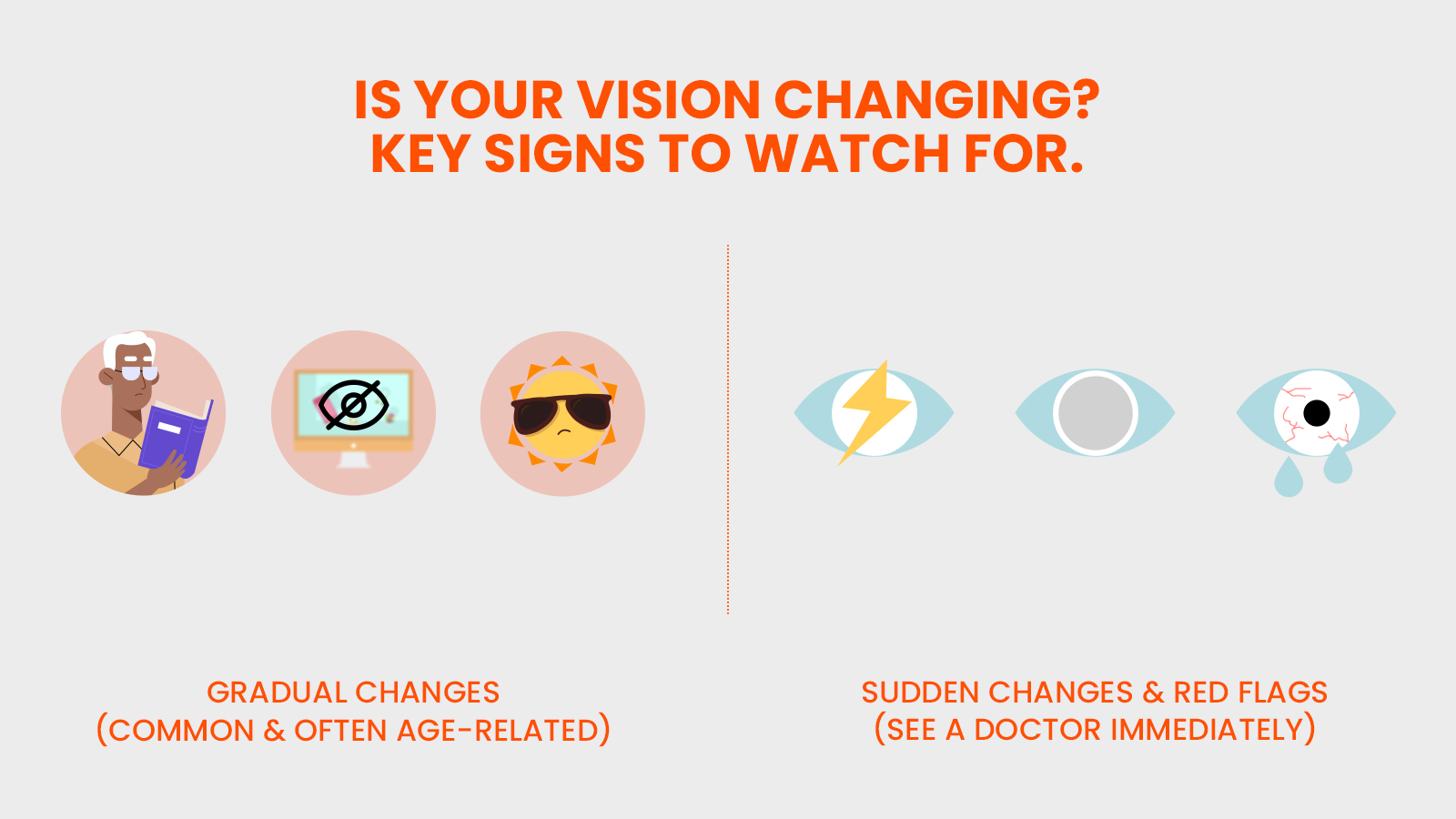
First: Is Your Vision Changing Suddenly or Gradually?
Before you assume anything, just notice how your vision is changing. A slow blur over months usually means your eyes adjust with age, or your prescription needs an update. But if you wake up one morning and things look cloudy or unclear suddenly, that could be something more serious.
Also, check if it’s in one eye or both. The American Academy of Ophthalmology says sudden vision changes always deserve a proper eye check-up; don’t delay it.
When to See an Eye Doctor Immediately (Red Flags)
There are some eye problems you should never ignore. According to the Cleveland Clinic, if you notice any of the following, it could be something serious:
- Sudden blurriness or complete loss of vision
- New floaters or flashes of light in your eyes
- A shadow or a curtain moving across your sight
- Strong eye pain, especially with redness or feeling sick
These signs can point to issues like retinal detachment or acute glaucoma, which need quick medical help. If anything like this happens, don’t wait for it to settle. Just go to an eye specialist or the emergency room right away. It’s better to be safe than sorry later.
The Most Common Causes: "Normal" Vision Changes
For most people, eyesight changes slowly over time; it’s part of how our eyes age.
Presbyopia (The "Over 40" Focus Problem)

After your forties, the lens in your eye becomes less flexible. Reading fine print on your phone might require a little arm stretch. It’s not a disease, just a normal change.
Progressive Myopia (Nearsightedness)
Myopia can worsen in teenagers and young adults as the eyes continue to grow. Too much screen time and less outdoor activity may contribute to it, says the Mayo Clinic.
Astigmatism and Hyperopia (Farsightedness)

These can shift slowly with time, which means you may need a new glasses number. Usually, a new prescription brings things back to clarity again.
Why Do My Glasses Seem to Make It Worse?
Many people feel like their eyes have become weaker because of glasses. In reality, glasses don’t harm your eyes; they help them. What actually happens is that your eyesight changes, but your glasses stay the same. So when you wear the old ones, things look off, and it feels like the glasses are the problem.
If your vision feels blurry with your current pair, it’s probably time for an update. We’ve already discussed this in our blog, “Do Glasses Make Eyes Worse?” which completely dispels this myth.
How Lifestyle and Environment Impact Your Vision
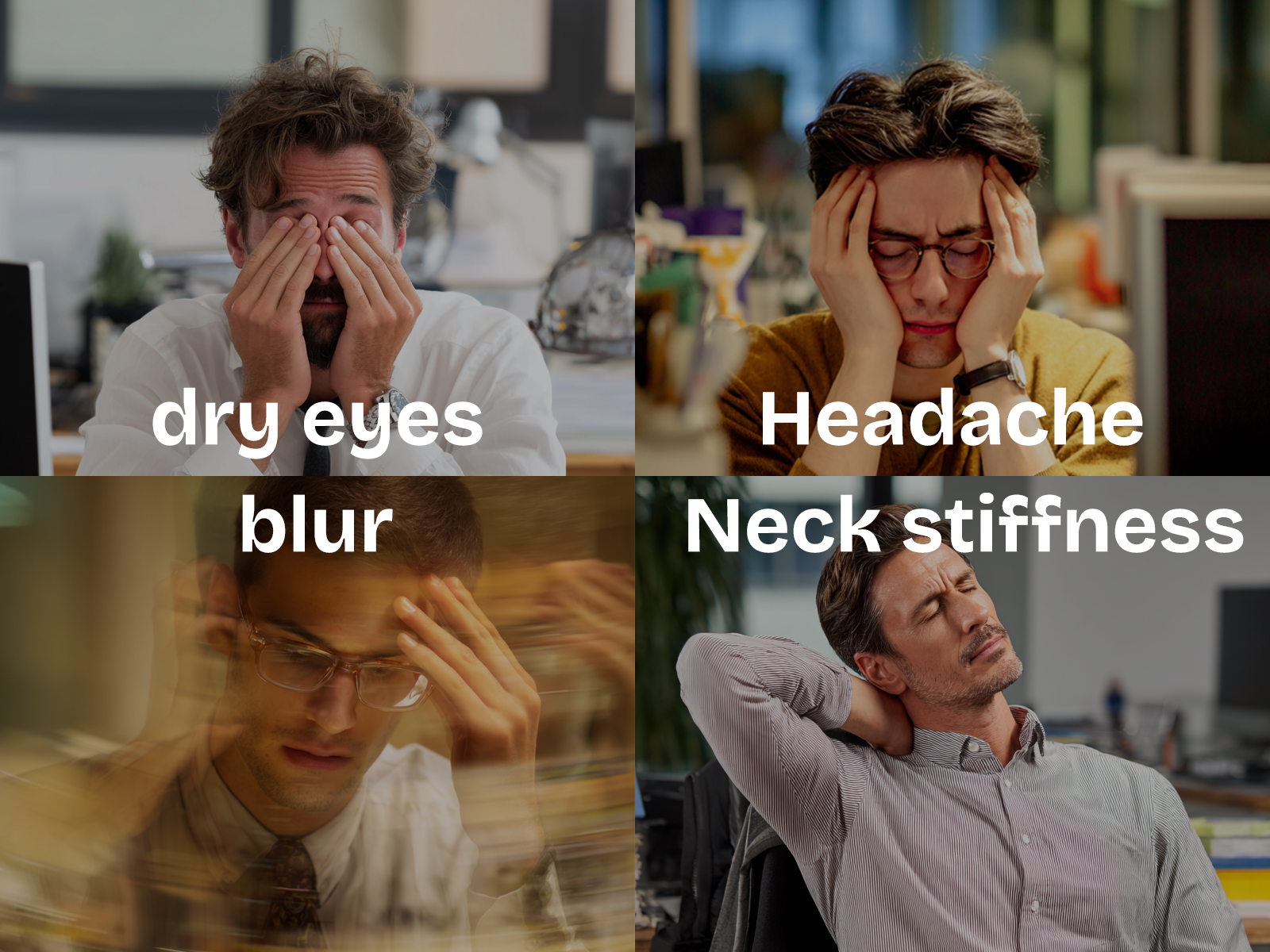
The Truth About Digital Eye Strain
Digital eye strain: Too much screen time, on phone, laptop, or TV, can make your eyes dry, tired, or a bit blurry. Doctors call this Computer Vision Syndrome. The good thing is, it’s not permanent; your eyes just need some rest.
The 20-20-20 Rule: A Practical Fix for Eye Fatigue
Try the 20-20-20 rule: Every 20 minutes, look at something 20 feet away for 20 seconds. It helps your eyes relax and prevents fatigue.
Other Factors: Lack of Sleep, Poor Diet, and UV Exposure
Other habits: Not sleeping properly, eating too much junk food, or stepping out without sunglasses also put extra strain on your eyes. Eat more green vegetables, fruits, and fish with omega-3. And please wear UV-protection glasses whenever you go outside. These small steps really help in the long run.
When Worsening Vision Signals a Deeper Health Issue
Cataracts (Gradual "Clouding" of Vision)
You might notice your vision looking cloudy or foggy. Bright lights can feel too strong, especially while driving at night.
Glaucoma (The "Silent" Vision Loss)
This one quietly damages your optic nerve. Most people don’t even feel it at first. You may start losing side vision slowly, so checking your eye pressure is very important.
Age-Related Macular Degeneration (AMD)
Age-related macular degeneration (AMD): It affects central vision, making it hard to read or recognize faces.
Diabetic Retinopathy
High sugar levels damage the small blood vessels inside the eyes. Keeping diabetes under control helps slow this down.
Mayo Clinic suggests that early diagnosis makes a big difference, so don’t delay your check-ups.
Your Action Plan: How to Get Clarity and Protect Your Sight
The Single Most Important Step: Schedule a Comprehensive Eye Exam
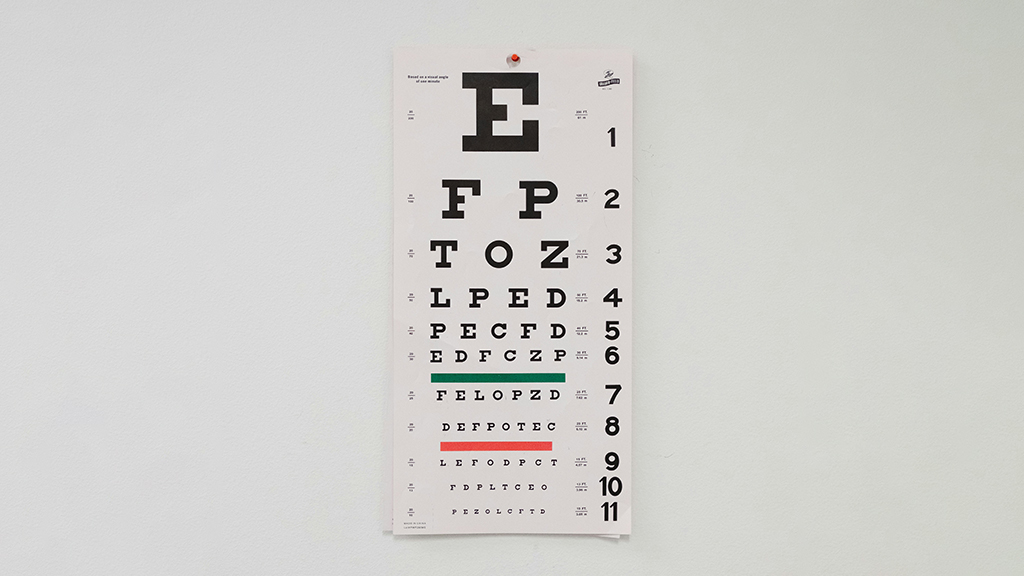
If your eyesight has been bothering you, do one thing: book an eye test. Guessing won’t help. Let the doctor check and tell you the real reason. Sometimes, it’s just a small change in a number. Other times, it’s something that needs quick care.
What to Expect at Your Appointment
During the test, you’ll read a few charts, maybe get your eye pressure checked, and sometimes they’ll use drops to widen your pupils; it wears off in an hour. The process is simple and gives peace of mind.
Preventative Habits for Long-Term Eye Health
In daily life:
- Wear sunglasses outside
- Eat proper meals
- Take breaks from your phone or laptop
- Get enough sleep.
- If you have sugar or blood pressure issues, try to keep them stable.
These small habits really protect your eyes in the long run.
FAQ on Worse Eyesight
Why is my eyesight getting worse so fast?
Usually, it means your glasses number needs updating. But if it happens suddenly, it’s better that you get it checked soon.
How can I stop my eyesight from getting worse?
You can’t entirely stop it, but you can slow it down. Eat properly, rest your eyes often, and keep a healthy lifestyle. These small steps do make a difference.
Do glasses make your eyesight worse?
No, that’s not true. Glasses only help you see clearly. If things look blurrier now, it just means your number has changed, not that glasses made it worse.
Final Thoughts
Everyone’s eyesight changes at some point; it’s normal. The best thing is not to panic. Just keep a check, visit your eye doctor regularly, and take care of small things.
And if you feel your current glasses don’t suit you anymore, maybe it’s time to change them. Vooglam has new styles that make you look smart and see better at the same time. After all, your glasses should not only help you see the world clearly but also let you feel confident being seen.

Vooglam Blog
Vooglam blog shares professional knowledge about eyeglass frames, lenses, etc., and provides help when purchasing and using eyewear products. At the same time, Vooglam focuses on fashion glasses to interpret the trend of glasses for you.

Office to Gala: 3 Styling Formulas for Your Day-to-Night Wardrobe
We know the drill. You have a concept pitch at a creative studio at 2:00 PM, a gallery walk-through at 6:00 PM, and a live gig at a basement venue that doesn't even kick off until midnight. You are no
January 29,2026
Experimental Eyewear: When Glasses Become Wearable Art
From Function to FormWalk into any gallery opening in Berlin, Tokyo, or New York and you'll notice something: the people who actually care about design aren't wearing Persol or Oliver Peoples anymore.
January 27,2026
The Best Streetwear Sunglasses & Glasses of 2026 (Vooglam's Editor's Picks)
Streetwear eyewear has reached a turning point. What started as logo-heavy collaborations and hype drops has evolved into something more interesting: frames that prioritize actual design innovation al
January 27,2026
The Ultimate Valentine’s Gift Guide: Bold Symbols of Affection in Black & Red
Love is rarely just "sweet." At its best, it is intense, enduring, and a little bit rebellious. Yet, every February, we are bombarded with soft pinks and disposable chocolates. This year, we are sugge
January 26,2026











